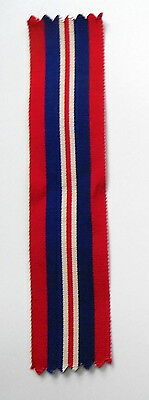-40%
WW2 British Royal Navy DSM Distinguished Service Medal Group Submarine Action
$ 4488
- Description
- Size Guide
Description
WW2 British Royal Navy DSM Distinguished Service Medal Group Submarine Action. The DSM is officially named to LT/JX 241157 A. Milne Smn H.M.T Lady Shirley. Unusual action as it was a Trawler which sunk U-111 in October 1941. Comes with copied research.Second World War anti-U-boat operations D.S.M. group of five awarded to Seaman Albert Milne, Royal Naval Patrol Service, who was decorated for his part in the celebrated “David and Goliath” action between H.M. Trawler
Lady Shirley
and the U-111 in October 1941; he was afterwards killed when the
Lady Shirley
was sunk by the U-374 in December 1941
D.S.M.
London Gazette
18 November 1941: ‘For daring and skill in a brilliant action against a U-boat in which the enemy was sunk and surrendered to H.M. Trawler
Lady Shirley.’
Seaman Albert Milne, LT/JX.241157, H.M.T.
Lady Shirley
.
Seaman Milne is mentioned in the following terms in the official action report: ‘As masthead lookout he was largely responsible for the successful outcome of the attack... after the gunlayer had been killed this rating was outstanding in keeping the 4” gun in action... Seaman Milne behaved with great calm and determination, and got the rounds away in rapid succession.’
The
Lady Shirley,
a trawler of some 477 tons, built in 1937 and requisitioned by the Admiralty for use as a Special Patrol Vessel was based in Gibraltar. At 0840 hours on 4 October 1941, the trawler was on patrol in the North Atlantic when the masthead lookout [Albert Milne] reported an object on the horizon. It was thought that the object was a ship’s funnel but owing to the possibility that it might be the conning tower of a submarine, the trawler altered course towards it. The object disappeared shortly after being sighted but at 1004 hours contact was made with a submerged submarine and action stations were ordered. A pattern of depth charges were released and following the explosions a periscope appeared in the bubbles and a submarine broke the surface. The trawlers helm was put hard over to port to bring the 4” gun to bear and fire was opened as soon as possible, at the same time machine guns on the bridge opened fire on the conning tower. The submarine opened fire with her machine guns and instantly killed the gun layer of the 4” gun. However, rapid fire was maintained and some six hits were recorded on the submarine causing the crew to surrender. The trawler picked up some 45 of the enemy crew and the submarine was seen to sink by the stern.
The time was then 1023 hours and the whole action had lasted less than 20 minutes. Of the crew of 30 on the trawler only 9 men remained unwounded after the action to work the ship and guard the prisoners on the four day journey back to Gibraltar.
Such was the magnitude of the
Lady Shirley’s
achievement, that Their Lordships quickly approved the award of one D.S.O., two D.S.Cs, one C.G.M., six D.S.Ms and five mentions to her crew of ‘about 30’ men.
A little over two months later, at about 0305 hours on 11 December 1941
Lady Shirley,
in company with H.M.S.
Rosabelle,
were on patrol in the straits of Gibraltar when, in what was rumoured to be a quite deliberate act of revenge, both ships were sunk without trace by the German submarine U-374. There were no survivors from either ship and Albert Milne who was still serving in
Lady Shirley
is recorded as killed in action. He is commemorated by name on the Lowestoft Naval Memorial. He was 24 years of age at the time of his death and left a young widow.












